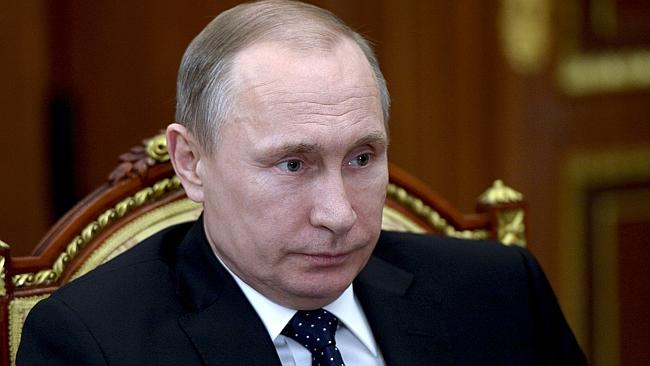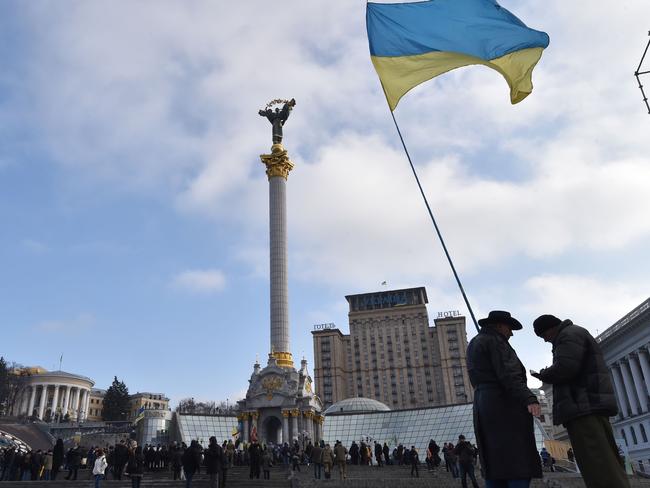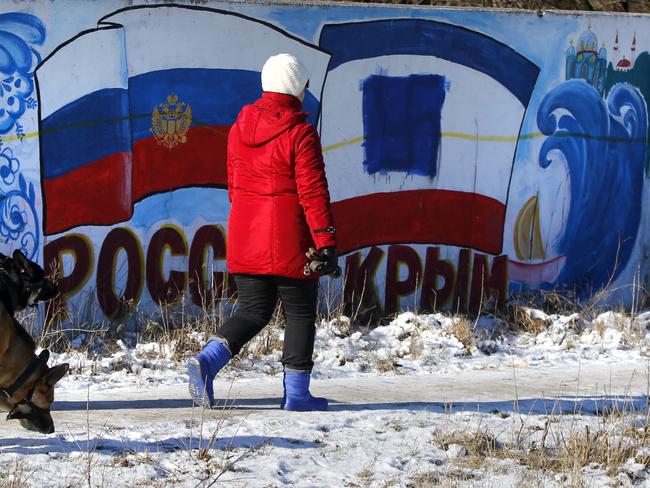Russia set to lose population, power and influence, report predicts
PUTIN may be making a lot of noise at the moment but it’s going to be a bumpy ride ahead for the Russian leader.

RUSSIA’S population, economy and influence is all set to fall sharply in the next 25 years, according to new predictions.
Not only will the global power player lose friends and influence, but Russia will also be forced to re-evaluate its role in several regions, according to private-intelligence firm Stratfor.
In its Russia and the West: A 25-year Forecast, it predicts Vladimir Putin’s beloved nation is in for one bumpy ride.
Stratfor, which successfully predicted Europe’s inability to cope with the financial crisis and the US-jihadi war, also predicts new allegiances will be made and Russia won’t be part of them.
So which countries will fill the power vacuum and how will Russia cope?
According to Stratfor, Russia will fall from being as powerful with its leaders forced to look at other ways to ensure its survival in a new world order.
Among the other predictions are:
LACK OF PEOPLE
By 2050, Stratfor predicts, based on current UN demographic projections that Russia’s population will fall by around 10 per cent from 143 million to 129 million.
In comparison the population of the United States will jump by almost 20 per cent, from 322 million to 389 million while the rest of Europe will fall somewhere in between.
ECONOMIC AND MILITARY POWER DECLINES
With a loss of people comes a decline in other areas, Stratfor predicts.
“Russia’s relatively steep demographic plunge can be expected to undermine its ability to influence its former Soviet neighbours,” it warns.
Both the cultural and social bond tying Russia to its neighbours will also further weaken with each year that passes since the Soviet Union’s collapse.
According to Stratfor, the biggest challenge Russia faces will be “tyring to maintain its position and advantage in the former Soviet periphery as its resources decline and the cultural and political ties underpinning its position erode.”

UKRAINE WILL SIDE WITH THE WEST
The nation has always been in Russia’s sights with its bigger neighbour using natural gas cut-offs and outright military intervention to maintain its grip on power.
Ukraine has been the centre of a tug-o-war between Russia and the West for years, but in recent times tensions have escalated particularly after Russia’s annexation of Ukraine in 2014, triggering international condemnation.
However, it is a sticking point with many in Ukraine with Stratfor predicting it will ultimately come back to bite Russia, “weakening the historical bonds between the two countries”.
“Animosity will probably only intensify as younger generations with no memory of Ukraine’s Soviet period grow up in a country where Russia poses the greatest threat to national security,” it predicts.
The ties will be further weakened with economic ties between the two continuing to loosen.
Ukraine has already slashed imports of Russian natural gas while Russia is threatening to embargo Ukraine goods.
“Such retaliatory measures will probably intensify over time, and the two countries will come to rely less on each other economically,” the report says.
It also predicts a reorientation back towards Russia is extremely unlikely.
Ukraine instead will strengthen ties with Lithuania and Poland, becoming a strong bloc.
The two however won’t sever ties completely.

RUSSIA LEFT OUT IN THE COLD
A new eastern bloc will form, and Russia won’t be welcome.
The emergence of a stronger Belarus, Moldova and the Baltic states of Estonia, Latvia and Lithuania will see new ties formed and Russia won’t be included.
“In the next quarter century, the countries of Eastern Europe will begin to coalesce, forming a new regional bloc that will pool the economic and military strength of its members,” Stratfor predicts.
Those regional ties will be tightened as Belarus, the Baltics, Moldova and Ukraine all suffer massive declines in population, forcing these countries to look at other ways to grow.
“As their populations shrink, Eastern European nations will be forced to forge partnerships to avoid economic downturns and to protect themselves from external threats,” the report says.
RUSSIA WILL LOSE ITS BEST MATE
Staunchly pro-Russian nation Belarus will fall out of love with its bigger cousin with its “unwaving loyalty” coming into question over the next 25 years.
Changing politics and demographics as well as economic needs will force Belarus to look elsewhere for support.
“The growing availability of non-Russian energy supplies, especially via liquefied natural gas import terminals in Poland and the Baltic states, will ease Belarus’ dependence on Russia in the long run,” Stratfor predicts.
EASTERN ALLIANCE
With a projected population of just five million by 2025, the formation of an Eastern European alliance would be particularly attractive to three Baltic countries.
“By joining forces with Poland, Belarus and Ukraine, this figure would rise to at least 80 million people,” the report predicts.
“In this way, the Baltic states could overcome their small sizes and deter Russian interference in the region.”
The emergence of a strong bloc comprising Belarus, Ukraine, Moldova, Romania and the Baltic states would have a population comparable to Russia’s in the coming decades.
But according to Stratfor the big advantage it would have is being more advanced economically than Russia.
Militarily it would be able to defend itself against Russia but only with help from the US.

THE RISE OF OTHERS
A massive population boom in Central Asia will have a dramatic effect in the next 25 years.
Russia will also see its influence over the region decline as such cultural bonds while its economic and military influence also weakens.
While the West’s influence will weaken so will Russia’s.
Instead two other nations will fill the void left by Russia — Turkey and China.
“Four of the five states in Central Asia are ethnically Turkic, and as Russia’s cultural bonds in the region fade, Turkey’s will strengthen,” the report says.
With a predicted 96 million population by 2025, Turkey will wield more influence in the region, while China’s economic influence and input will also grow, further pushing Russia out of the power picture.



